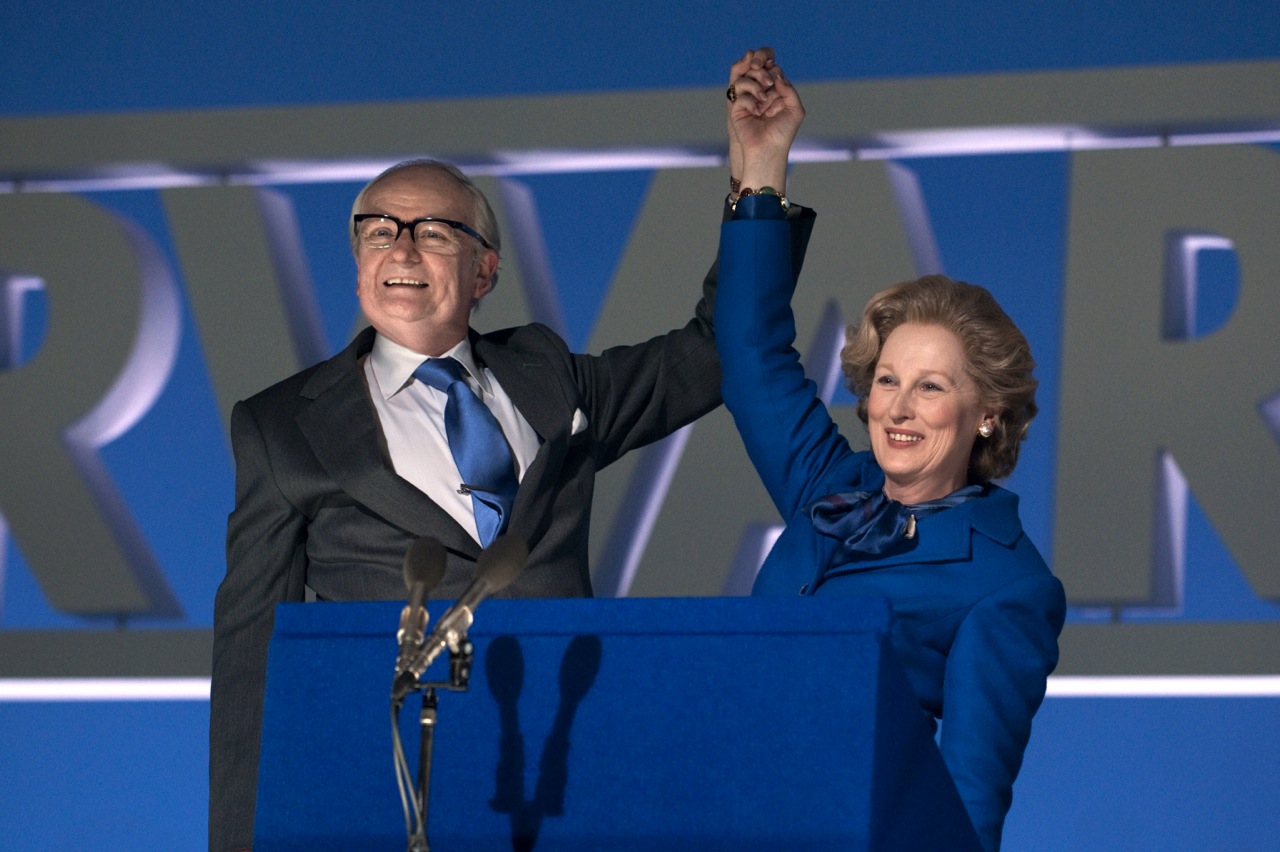
The Iron Lady feels like the best TV movie ever. In structure, length, content and technique, it feels much more like an excellent entry into the Masterpiece Theatre canon and a stand-alone feature film. If you go in expecting a sweeping, diaper-to-Depends biopic of Margaret Thatcher, you’re setting yourself up for disappointment; if you think it’ll be like The Queen, focusing on a single incident to illuminate a greater understanding of character, you don’t get that either. Rather, you’re treated to a performance by Meryl Streep so hypnotic that you are unaware you are watching a performance at all. Some roles draw attention to how complete they are; this one oddly doesn’t. It’s just Thatcher, through and through.
That’s reason enough to see the film, which is otherwise a disappointment. We first see Thatcher in her dotage, mistakable for a bag lady, as she drifts in and out of dementia: Forgetting she is no longer prime minister of Great Britain, thinking husband Denis (Jim Broadbent), long-dead, is still with her. But things — radio broadcasts, old suits, everything except a madeleine dipped in tea — trigger her recollections, in surprisingly linear fashion: Her early campaign for Parliament, her development from a shrill housewife in pearls to a deep-throated leader of the Right; her eventually ouster when her bullying reached intolerable proportions, even among her devoted followers.
But aside from broad statements about her beliefs and too many scenes of protestors attacking her limo to show her controversial nature, the film, directed by Phyllida Law (Mamma Mia), is thin on actual politics. In one scene, No. 10 Downing St. is firebombed, nearly killing Maggie and Denis. I recall nothing about this historically, but aside from showing it, the film never even tries to explain it: Was it the IRA or some other group? What exactly about Thatcher’s policies warranted this particular attack? The treatment of such matters is staggeringly superficial. (Her relationship with Reagan is barely mentioned.)
The Iron Lady does do a good job early on at portraying the then-prevailing political hierarchy of England as male-centric — a pond of fleshy-necked bullfrogs bloviating about how things need to be done. Maggie actually did things, not just talk about them, though you’ll learn more details of her politics watching Billy Elliot than this movie.
Still, the hype about Streep is deserved. She’s excellent playing Thatcher from 40s to 80s, showing her micro-managing habits that drove even her children crazy. It’s a sympathetic portrayal not because she’s so nice, but because she’s so human. Iron Lady? No, she was, at heart, still flesh and bone.















